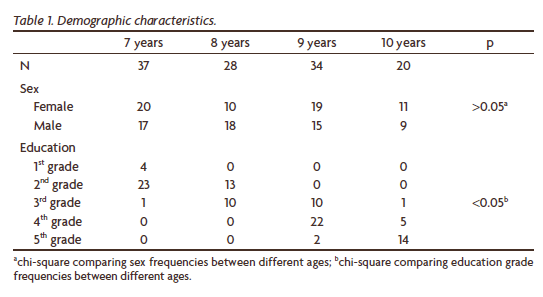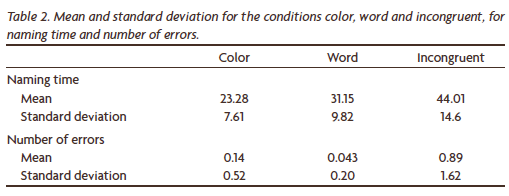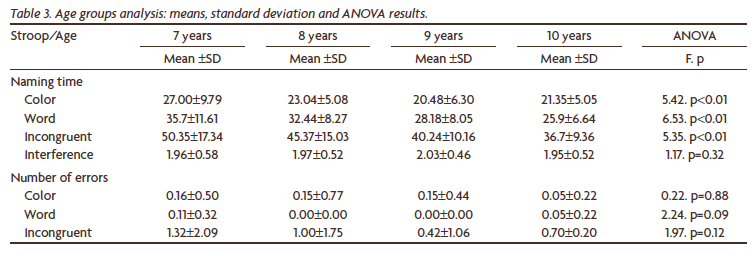BACKGROUND: The Stroop paradigm evaluates susceptibility to interference and is sensitive to dysfunction in frontal lobes. Performance in the Stroop changes along the development. Despite its usefulness in research and clinical settings, there are few studies with Brazilian samples. OBJECTIVE: This study investigates the performance and age effect on Stroop paradigm of Brazilian children. METHOD: A sample of 119 children, aged from 7 to 10 years, was submitted to the Victoria version of Stroop. RESULTS: The pattern of results observed was similar to that observed in foreign studies with adults and children. Younger children were overall slower than older ones (positive correlation between age and naming time). Also, younger children showed more susceptible to interference than older ones (negative correlation between age and number of errors for the maximal interference condition). CONCLUSION: There was an age effect explained in terms of developmental changes in information processing velocity and attention selectivity.
attention; cognition; neuropsychology; child



